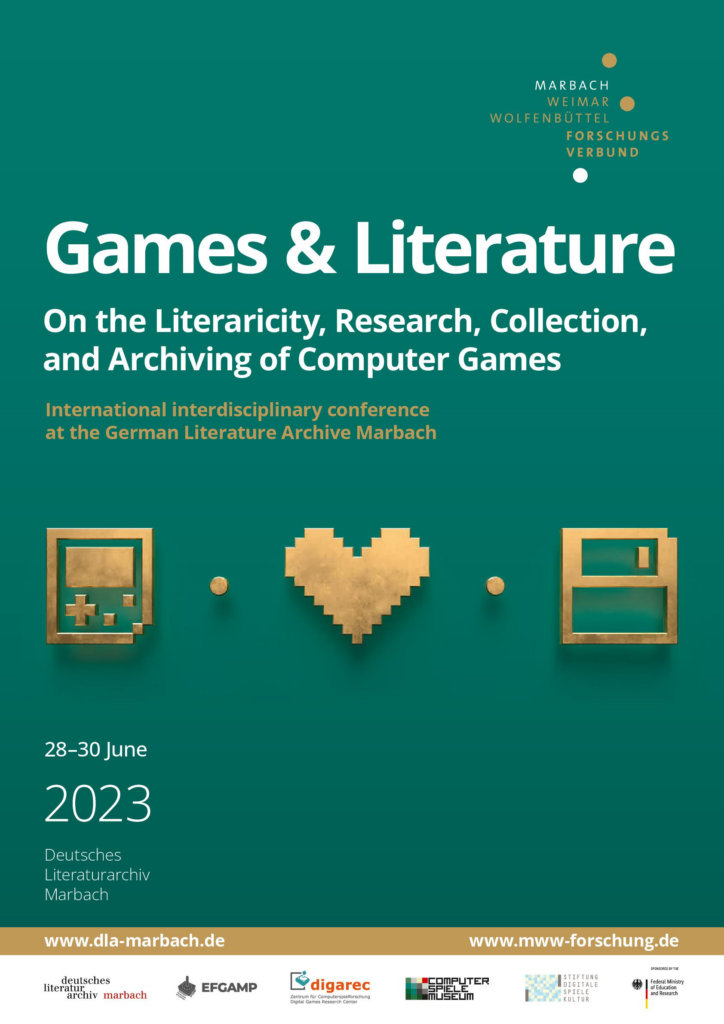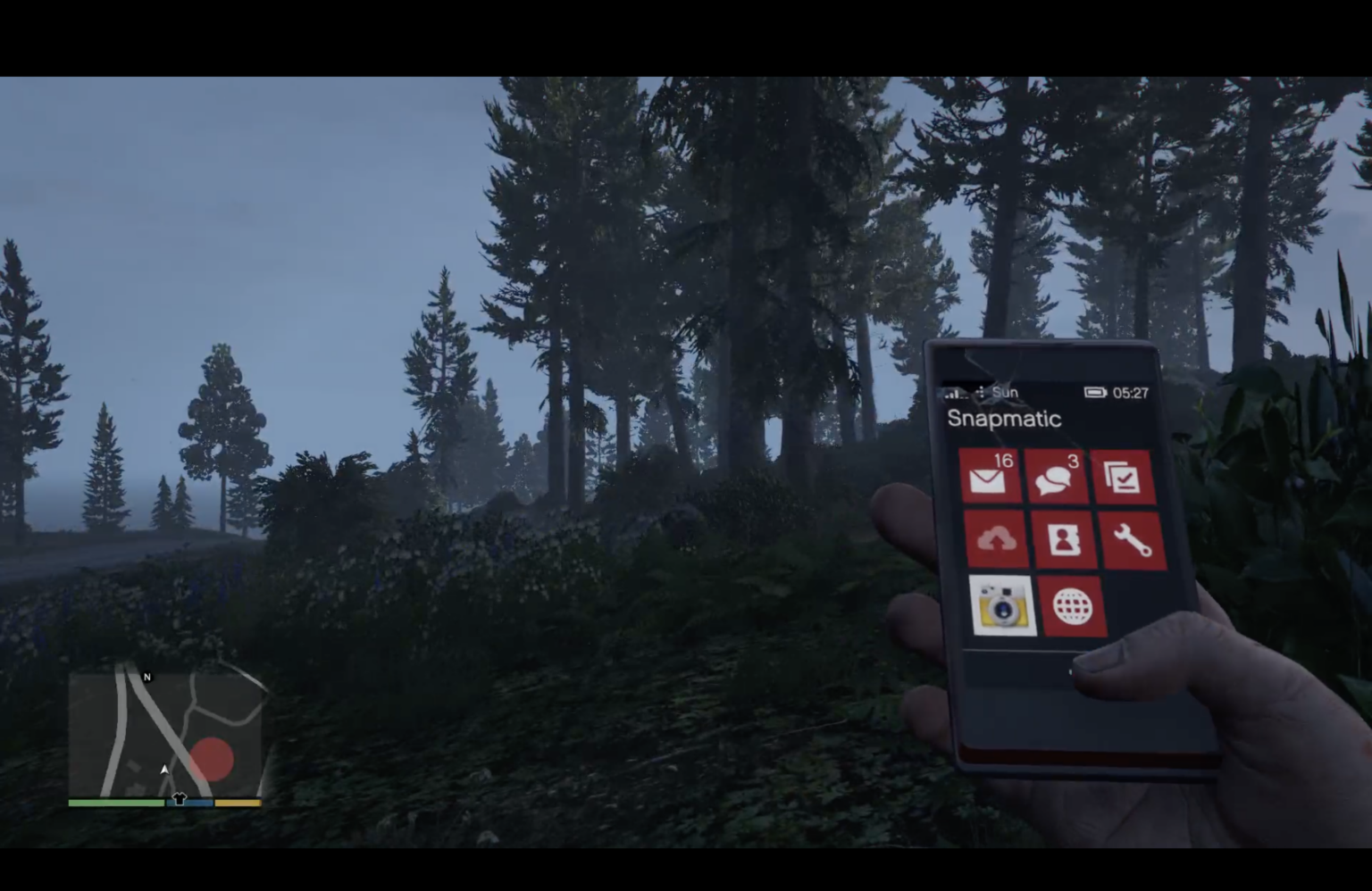DIGAREC Workshop “Game Aesthetics” 28.01.2019
Liebe Interessierte, Studierende und Computerspielaffine,
wir laden Sie und Euch herzlich ein, am 28.01.2019 von 10:00 (c.t.) (wir haben den Beginn aus organisatorischen Gründen von 10:30 Uhr auf 10:00 c.t. vorverlegt) – 12 Uhr zum Workshop mit unseren Gästen Justyna Janik (Jagiellonian Universität in Krakau, Polen) und Daniel Vella (Institute of Digital Games Universität Malta) zu kommen.
stattfinden wird die Veranstaltung in Haus 22, Raum 0.18. am Neuen Palais.
Die Themen werden sein:
The Wanderer in the Wilderness: Minecraft, Proteus and Being in the Virtual Landscape (Daniel Vella)
&
Game/r – Play/er – Bio-Object. Posthuman approach to the player-game relationship (Justyna Janik)
Updates finden Sie immer hier auf www.digarec.de
Die Vorträge werden in englischer Sprache stattfinden.
Da wir räumlich begrenzt sind, bitten wir Sie und Euch, sich bei Lydia
Kray, kray@uni-potsdam.de anzumelden.
Wir versuchen, den Workshop zu streamen über https://www.twitch.tv/digarec.
Hier noch etwas mehr zu den Referent_innen und dem Inhalt des Workshops:
Justyna Janik:
Game/r – Play/er – Bio-Object. Posthuman approach to the player-game relationship
The main aim of this presentation is to show a non-anthropocentric approach to the study the relationship between the player and the video game object. My theoretical perspective is based on a synthesis of posthuman theories, especially the concept of intra-actions by Karen Barad, with Tadeusz Kantor’s critical thinking about theatre. From Kantor I will borrow the idea of the “bio-object”, which, interpreted through the lenses of philosophical posthumanism, would help me explain how meanings are created inside and outside the gameplay by both human and non-human actants.
Justyna Janik is a PhD student at the Faculty of Management and Social Communication at Jagiellonian University in Kraków, Poland, as well as a member of the Jagiellonian Game Studies Research Centre. She holds MAs in Comparative Studies of Civilisations and Cultural Studies (specialisation in media studies). Her thesis concerns the subject of the relationship between a player and a video game, with a focus on the posthuman and performative nature of this bond. She is also fascinated by the works of Tadeusz Kantor, which she uses as a theoretical tool to better understand the video game as an object.
Daniel Vella:
The Wanderer in the Wilderness: Minecraft, Proteus and Being in the Virtual Landscape
“The presentation will focus on Minecraft (2011) and Proteus (2013) as ludic instances of the trope of the lone wanderer in a natural wilderness. It will draw on approaches to space and place from the phenomenological tradition, ludological approaches to game space, and phenomenological theories of digital game experience in order to arrive at an understanding of what is entailed, experientially and existentially, in the idea of ‘being-in-the-gameworld.’ On this basis, it will be claimed that the respective structures of being-in-the-gameworld that that the two games establish position the player in radically different relations to the landscape that fundamentally change the experienced significance of the wilderness. Minecraft will be considered in terms of the Heidegerrean notion of “standing-reserve” as it relates to the technological enframing of the landscape, while Proteus will be discussed in relation to Romantic theories of the relation between the individual and the landscape.
Dr. Daniel Vella
Lecturer
Institute of Digital Games
University of Malta
http://www.institutedigitalgames.com/
Dr. Daniel Vella is a lecturer at the Institute of Digital Games at the University of Malta, where he teaches classes in digital game studies, player experience and narrative in games. His research interests including the phenomenology of player experience, aesthetic theory and digital games, subjectivity and identity in virtual worlds, and narrativity and fictionality in games. His work has been published in a number of international journals, including Game Studies, Countertext and the Journal of Virtual Worlds Research. He is a member of the Game Philosophy Network, a research community at the intersection of philosophy and digital game studies, and chaired the tenth edition of the International Conference in the Philosophy of Computer Games.
Der Vortrag wird in englischer Sprache stattfinden.
Da wir räumlich begrenzt sind, bitten wir Sie und Euch, sich bei Lydia Kray, kray@uni-potsdam.de anzumelden.
Wir freuen uns auf Ihr und Euer Kommen!




